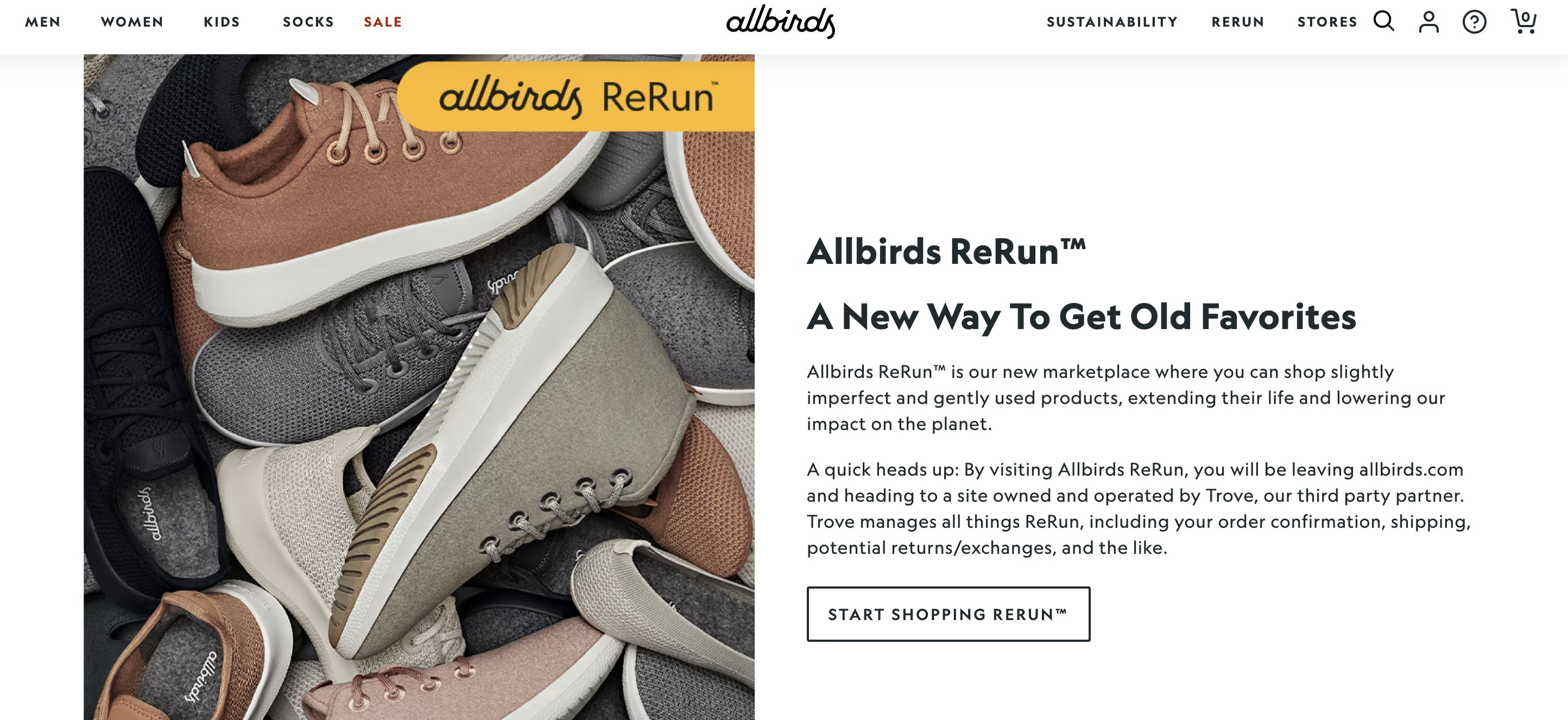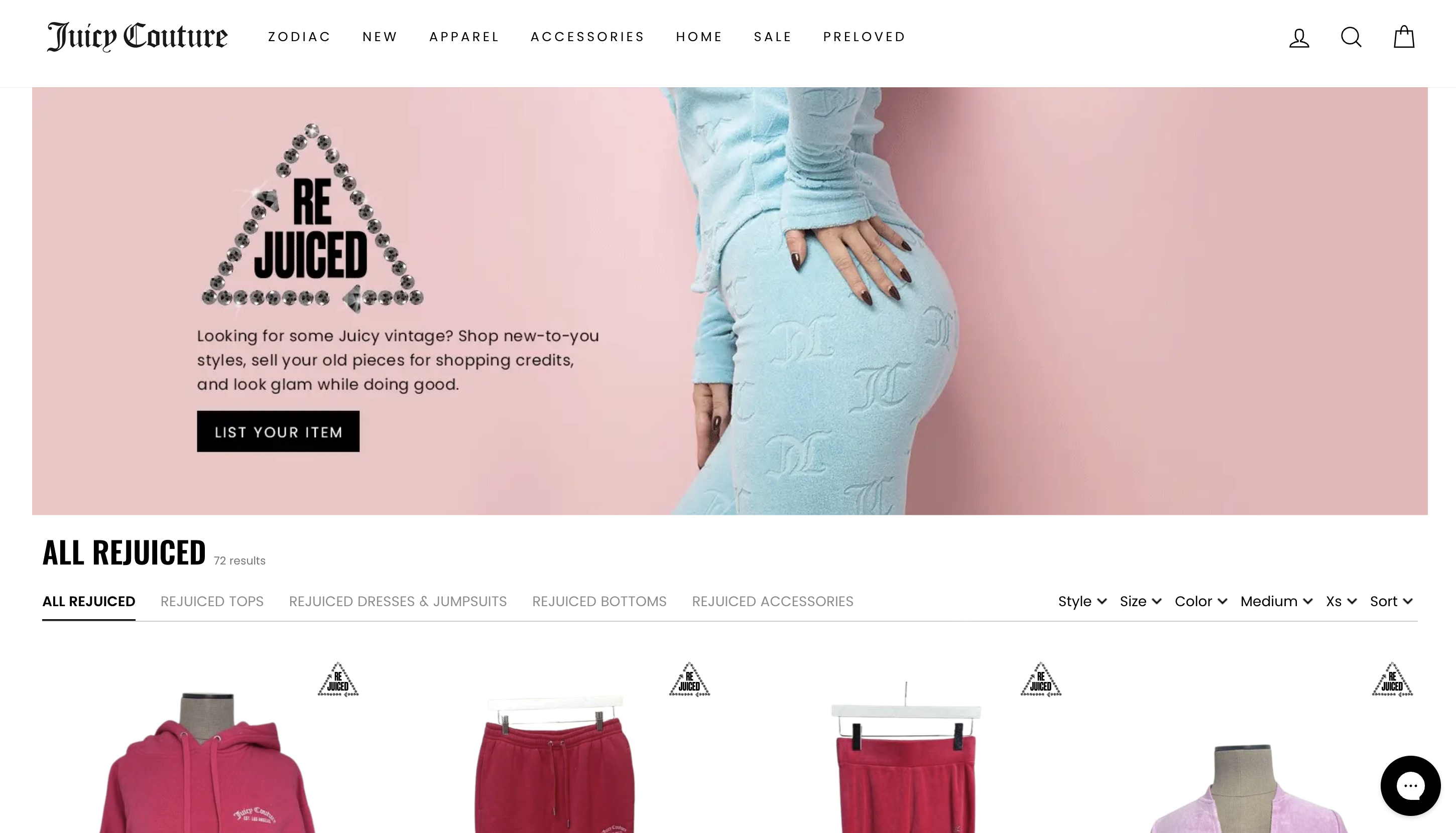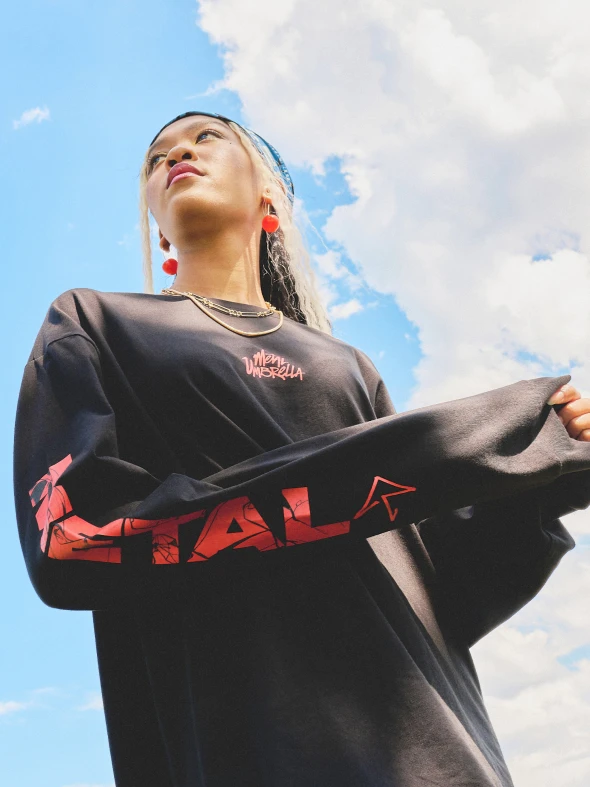The Rise of Recommerce

Quick Summary Tech Crush reports that the Recommerce market is projected to grow at a rate five times faster than the overall online retail market. What's driving this sudden resurgence of Recommerce, and which Shopify brands are actively participating in it?
In a world where the environmental impact of consumerism is at the forefront of global concerns, recommerce is emerging as a powerful catalyst for change. Recommerce, short for "reverse commerce," refers to the buying and selling of secondhand items. This trend is gaining momentum, reshaping not only how customers shop but also how brands rethink their ecological footprint.
A recent report reveals that a remarkable 85% of shoppers are actively engaged in purchasing and/or selling secondhand items, marking a notable 3% increase from the previous year. Furthermore, a substantial 27% of these shoppers are participating in secondhand commerce for the very first time. This surge in secondhand activity is contributing significantly to the projected growth of the recommerce market, which is estimated to reach a substantial $276 billion by the year 2028. That’s 5x faster growth than the overall retail market, according to Tech Crunch.
So why the sudden recommerce resurgence?
A Sustainable Shift in Shopping Habits
Recommerce is not merely a trend; it's a sustainable paradigm shift. It offers a solution to the ever-growing problem of waste by extending the lifecycle of products and reducing the need for new manufacturing. It's an environmentally conscious choice that challenges the conventional "buy new, discard old" mindset.
To comprehend this shift, one can trace it to the strong generational commitment of Gen Z toward ethical consumption. As they begin to wield their increasing purchasing influence, they are actively seeking out brands that align with their values and prioritize sustainability. This inclination is evident in a recent survey conducted by IBM, which revealed that Gen Z is not only willing but enthusiastic about paying an approximately 49% premium for a basic white cotton T-shirt, provided that it is sustainably sourced and manufactured.
Why is this example significant? It's because Generation Z stands at the forefront of the recommerce resurgence. eBay's recommerce report underscores that younger consumers are the primary driving force in the secondhand market, with a striking 80% of Gen Z actively purchasing secondhand items. Even more notably, nearly one-third of this same age group has ventured into selling within the past year, making them the largest generational segment actively championing sustainability and propelling the concept of reverse commerce into the mainstream.
That said, the secondhand market has evolved from a niche to a mainstream choice. Consumers no longer see buying secondhand as a compromise; it's a lifestyle choice. The thrill of finding unique and vintage items, combined with the sense of environmental responsibility, is the core driver for this trend.
The Digital Evolution of Recommerce
Think back to traditional avenues like flea markets and garage sales, and now, envision the contemporary online landscapes embodied by platforms such as Facebook Marketplace, Craigslist, and eBay. The core concept of recommerce has always been present.
The digitization of resales comes in many different business models:
Peer-to-Peer Marketplaces:
Within this community-driven framework, people engage in direct transactions with one another on a platform that serves as a marketplace. Platforms like eBay and Poshmark exemplify this approach.
Managed Marketplaces:
In this model, individuals sell their items to the platform itself, and the platform subsequently offers these items directly to its customer base. Prominent players in this category include The RealReal and ThredUp.
Managed Brand-Owned:
Under this model, brands acquire products from customers, process them, and subsequently market these items directly to customers via their own branded resale platforms. Resale platforms provide comprehensive solutions to brands, encompassing services such as trade-in, logistics, and e-commerce. Notable examples of this approach are Coach, REI, and Patagonia.
Peer-to-Peer Brand-Owned:
Under this framework, brands facilitate direct transactions between customers who buy and sell items from each other on a branded resale platform. Resale platforms empower brands by offering tools for both sellers and buyers, enabling customers to list, purchase, and ship branded products to one another. Brands like Frye and Outerknown have successfully embraced this peer-to-peer brand-owned approach.
Brands Embracing Recommerce
Traditionally, brands had limited access to insights regarding the secondary market for their products. The lack of data meant that recommerce didn't occupy a prominent place in boardroom discussions, as its potential impact on revenue and profitability couldn't be precisely quantified. However, the landscape has undergone a significant transformation thanks to the success of third-party resale platforms like Poshmark, The RealReal, and StockX. These platforms have not only achieved substantial revenue generation but also garnered billion-dollar valuations.
The increased transparency into the financial aspects of reselling, combined with the noticeable shift in consumer preferences towards sustainable practices, has propelled recommerce to the forefront. Forward-thinking consumer companies like Patagonia are spearheading this movement, openly declaring their intention to derive approximately 10% of their revenue from resale in the coming years. This ambitious target equates to over $100 million, based on their estimated annual revenue of over $1 billion.
When we consider what recommerce brings to brands, its appeal becomes evident. It provides brands with the opportunity to sell the same product multiple times, with costs primarily associated with repurchasing and logistics. Since brands can exercise control over the purchase price, this approach offers an attractive avenue to enhance both revenue growth and profit margins, with minimal labor and production expenses – all while connecting with customers on a deeper emotional level which ultimately boosts customer retention and loyalty.
Shopify Brands Embracing Recommerce:
1. ReRun by AllBirds:
Numerous retailers are merging recommerce programs with enticing customer offers, exemplified by Allbirds' partnership with Trove. Allbirds motivates its customers by granting them $20 in-store credit when they return their gently used Allbirds shoes. These secondhand shoes are then listed for resale on the ReRun platform, starting at a price point of $59.

This endeavor represents a part of the broader Allbirds Flight Plan, which underscores the company's unwavering dedication to fostering a more sustainable fashion industry.
2. Rejuiced by Juicy Couture:
Powered by Recurate, Rejuiced is an online platform for peer-to-peer resale. This innovative marketplace empowers Juicy Couture customers to list their pre-loved clothing and accessories directly on Juicy's e-commerce website.

Users can upload their product photos, add descriptions, and set their desired prices for each item. Subsequently, Juicy Couture's team authenticates and reviews the listings before featuring them in the resale section. After a buyer confirms the item's condition, the seller receives compensation in the form of store credit.
3. Revitalized by Vitality
Similarly, we collaborated with our client, Vitality, a brand that promotes body positivity through activewear, to conceptualize and launch their specialized peer-to-peer (P2P) resale platform. Supported by our trusted partners, Loop Returns and Recurate, Vitality Revitalized provides customers with an effortless way to purchase and sell pre-owned Vitality products.
Shopify Plus Development, Personalization & A/B Testing for Vitality.
Upon the buyer's confirmation of the item's condition and satisfaction, the seller will receive compensation, which can be in the form of store credit or cash via PayPal. This adaptable approach ensures that the seller's preferences are accommodated, guaranteeing that their efforts are duly recognized.

Avex collaborates with Recurate, a prominent company specializing in circular economy technology, providing brands with an innovative e-commerce solution to facilitate the resale of their products. Recurate empowers brands to establish a seamlessly integrated resale marketplace within their e-commerce stores, permitting customers to resell items they've bought from the brand previously.
Our team meticulously plans, devises strategies, and offers expert consultancy to enhance your customers' experiences, keeping your brand aligned with the ever-evolving cultural landscape. We wholeheartedly embrace your mission and leverage our expertise to consistently introduce fresh ideas. Don't hesitate to reach out to us today.
